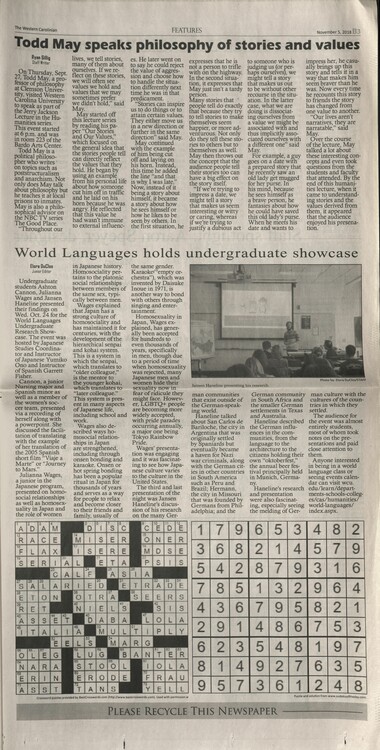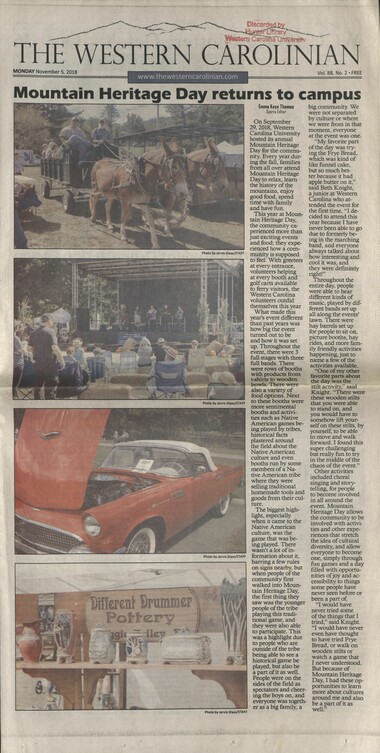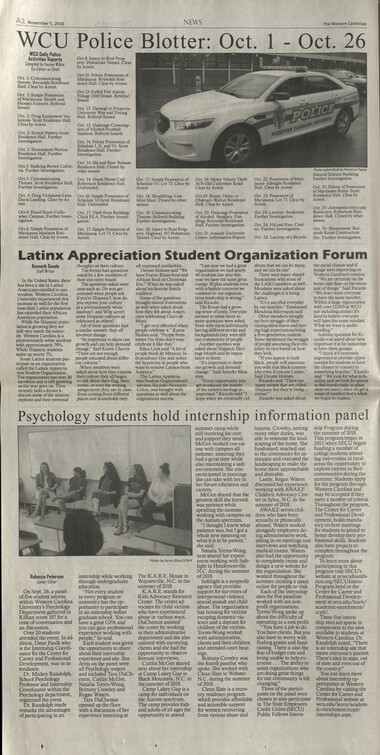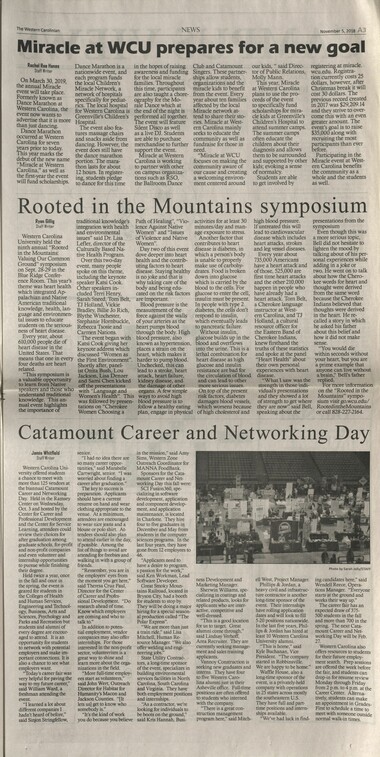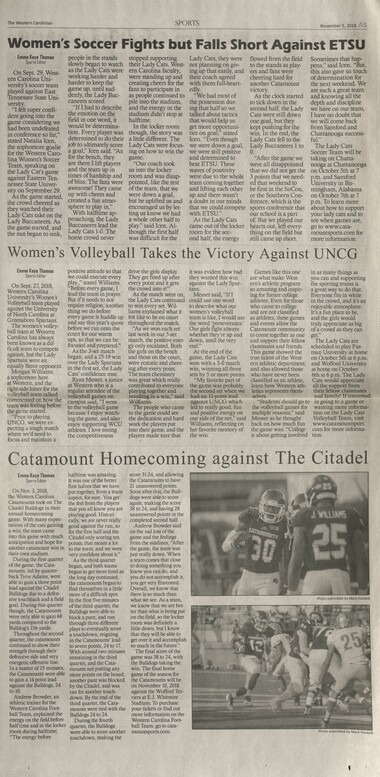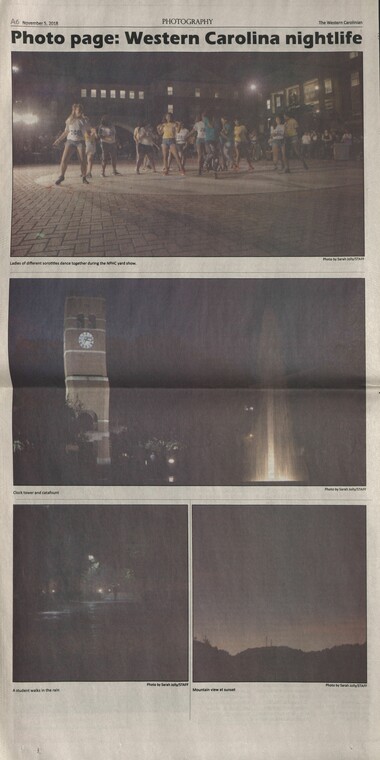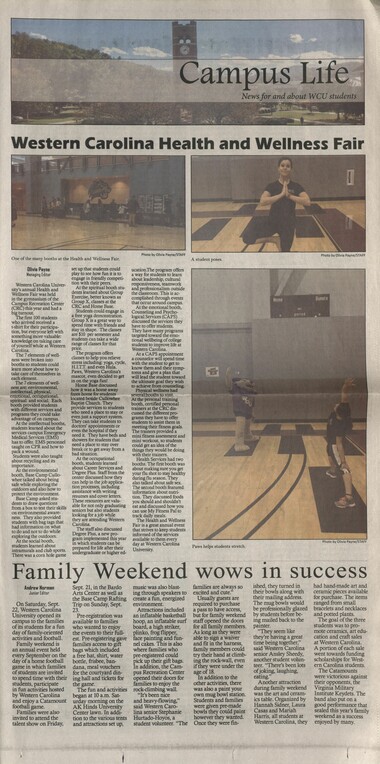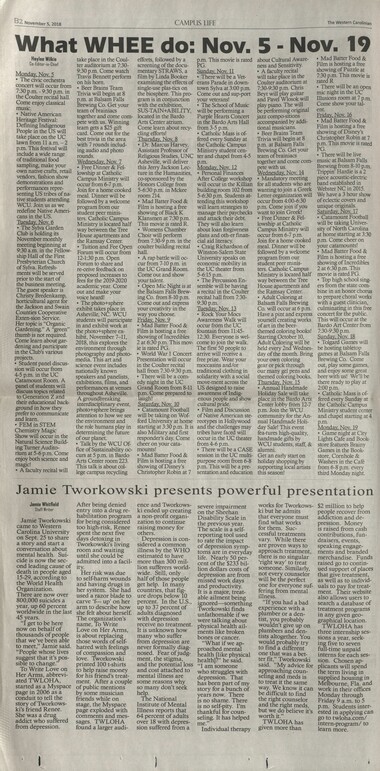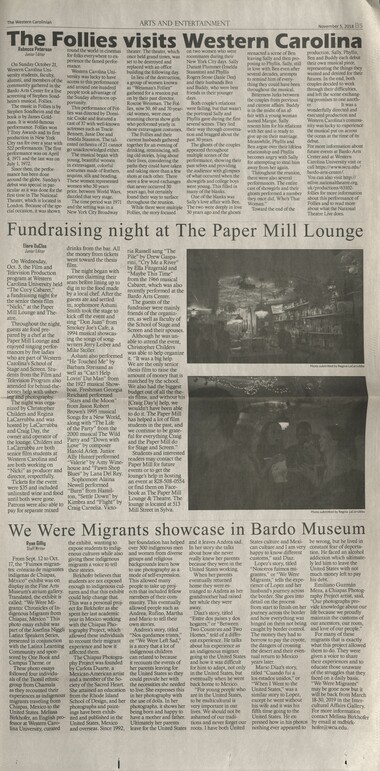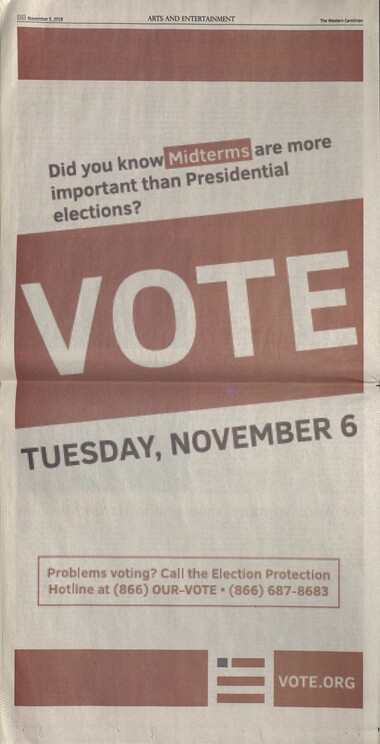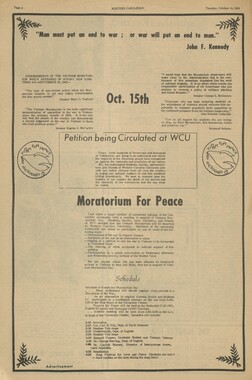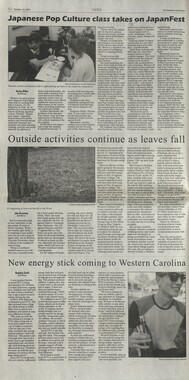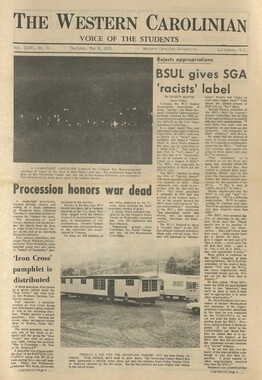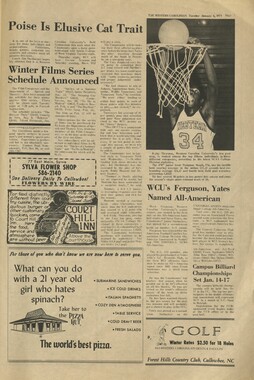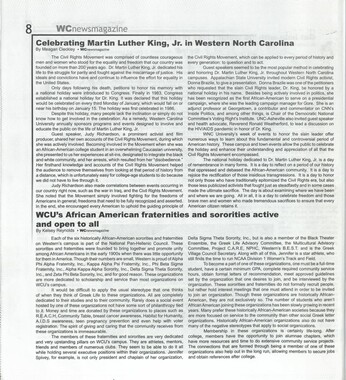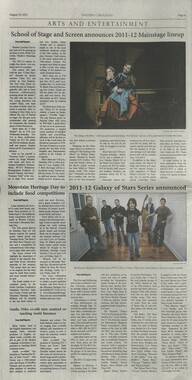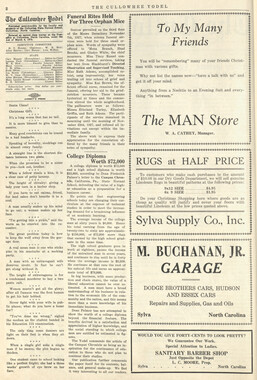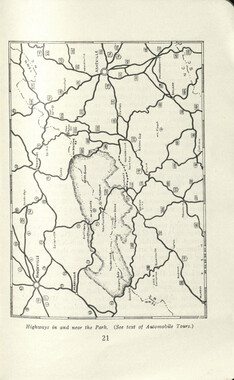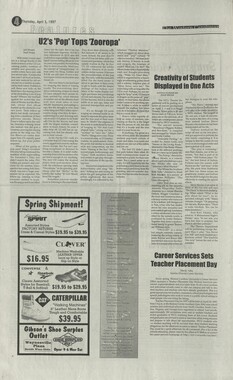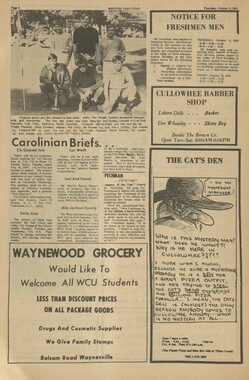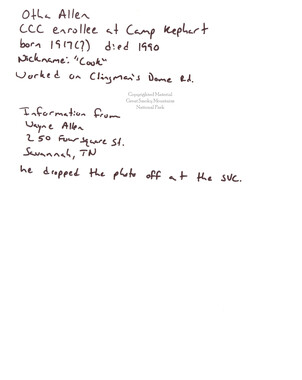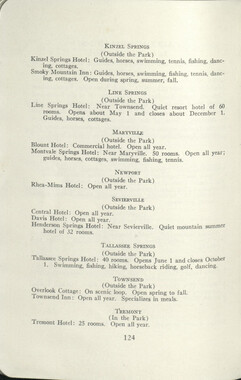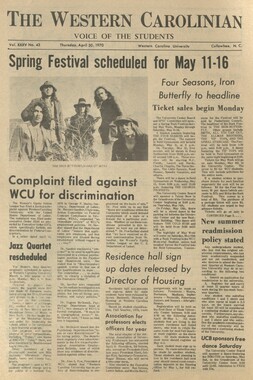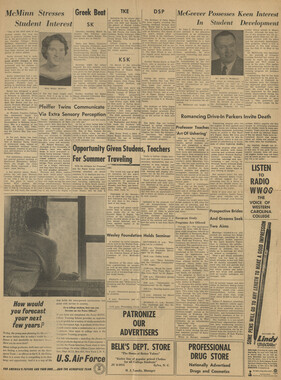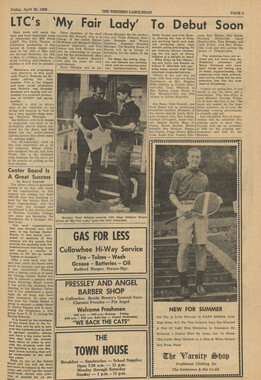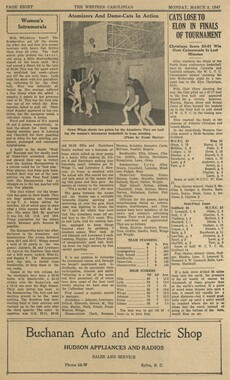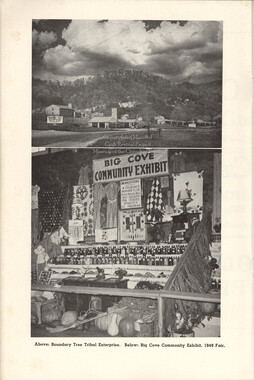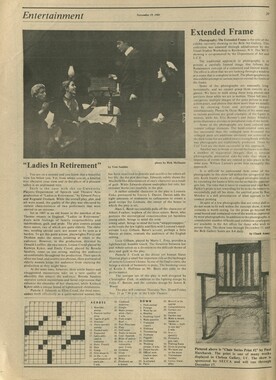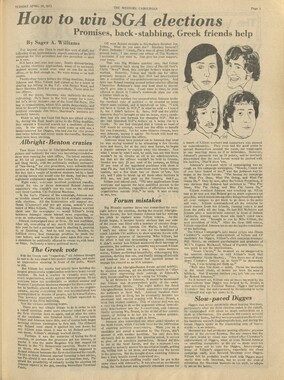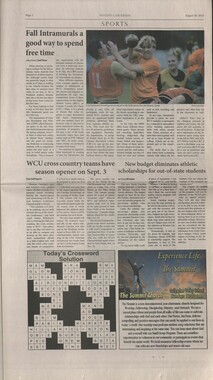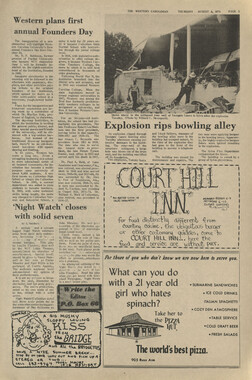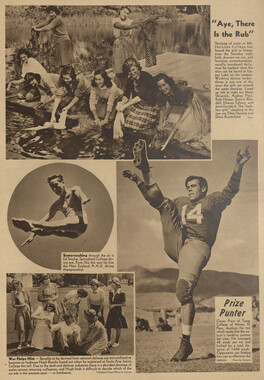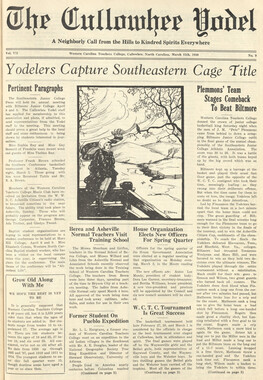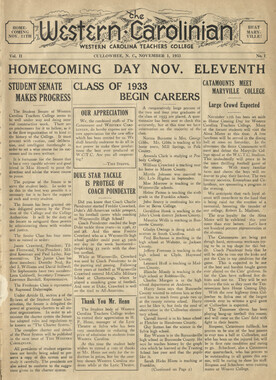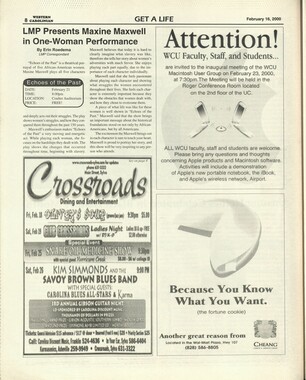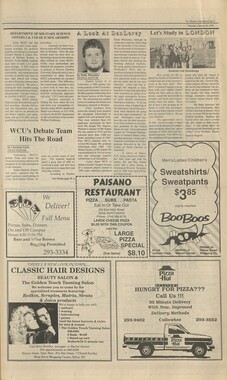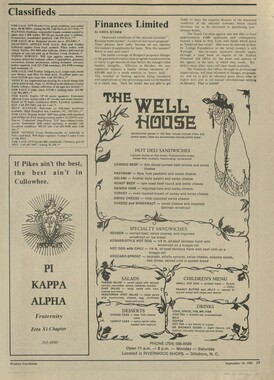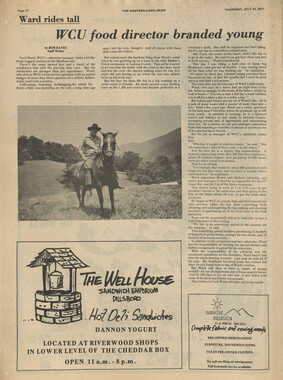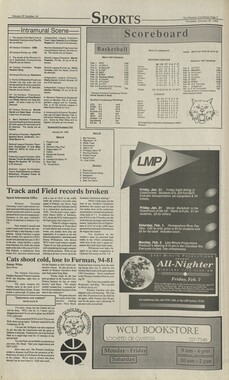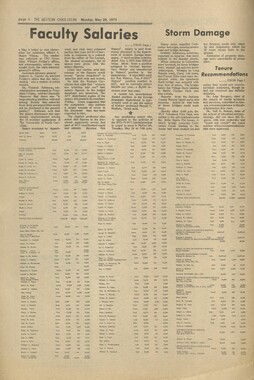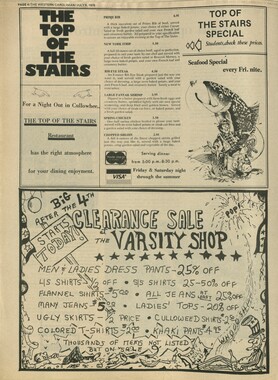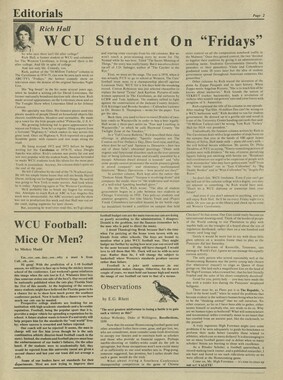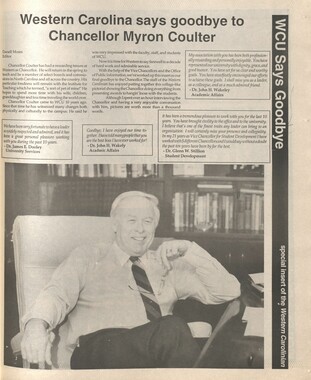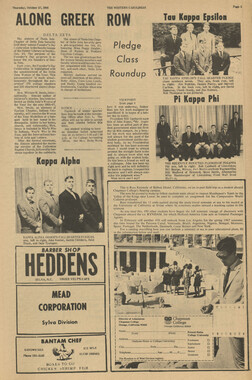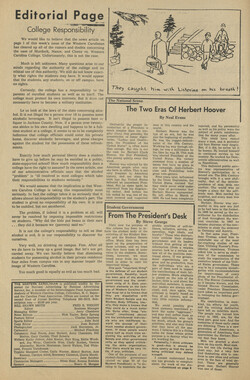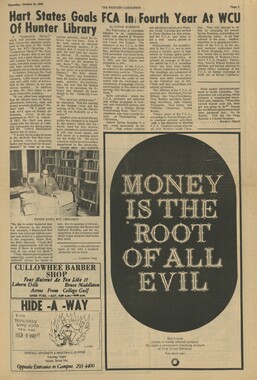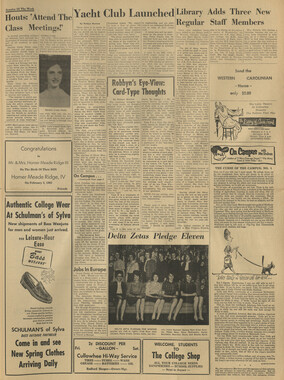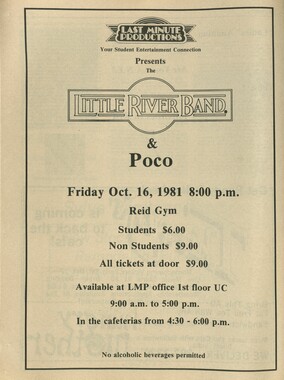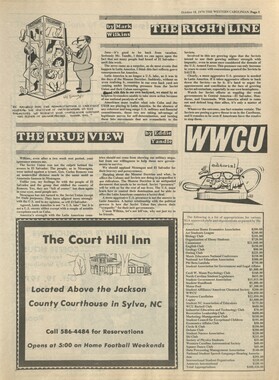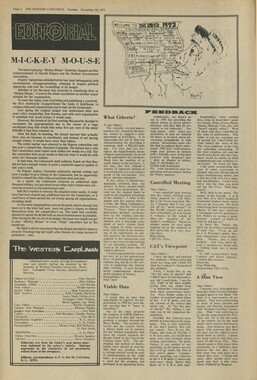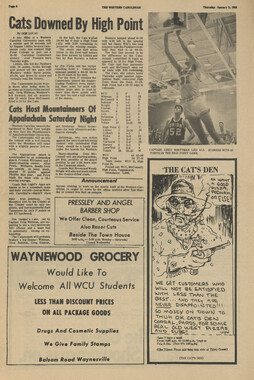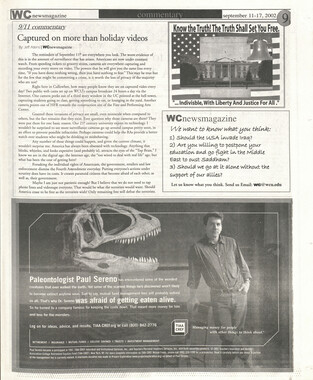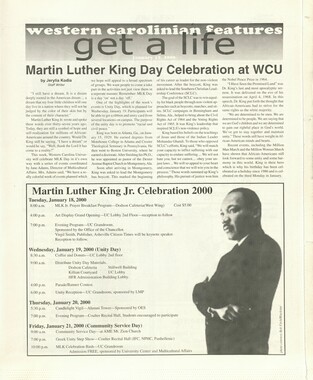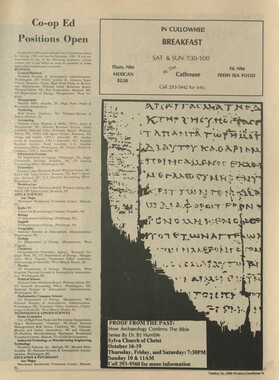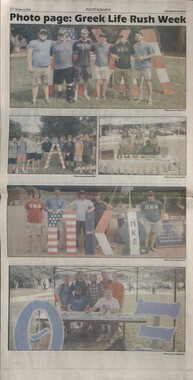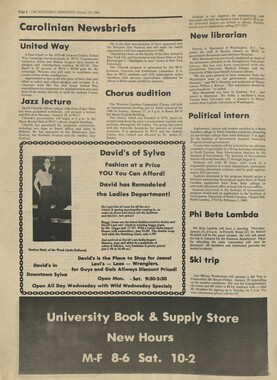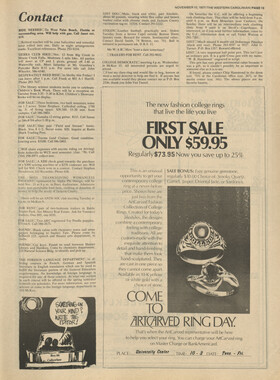Western Carolina University (21)
View all
- Canton Champion Fibre Company (2308)
- Cherokee Traditions (291)
- Civil War in Southern Appalachia (165)
- Craft Revival (1942)
- George Masa Collection (137)
- Great Smoky Mountains - A Park for America (3080)
- Highlights from Western Carolina University (422)
- Horace Kephart (973)
- Journeys Through Jackson (159)
- LGBTQIA+ Archive of Jackson County (89)
- Oral Histories of Western North Carolina (318)
- Picturing Appalachia (6617)
- Stories of Mountain Folk (413)
- Travel Western North Carolina (153)
- Western Carolina University Fine Art Museum Vitreograph Collection (129)
- Western Carolina University Herbarium (92)
- Western Carolina University: Making Memories (738)
- Western Carolina University Publications (2491)
- Western Carolina University Restricted Electronic Theses and Dissertations (146)
- Western North Carolina Regional Maps (71)
- World War II in Southern Appalachia (131)
University of North Carolina Asheville (6)
View all
- Allanstand Cottage Industries (62)
- Appalachian National Park Association (53)
- Bennett, Kelly, 1890-1974 (1463)
- Berry, Walter (76)
- Brasstown Carvers (40)
- Carver, George Washington, 1864?-1943 (26)
- Cathey, Joseph, 1803-1874 (1)
- Champion Fibre Company (233)
- Champion Paper and Fibre Company (297)
- Cherokee Indian Fair Association (16)
- Cherokee Language Program (22)
- Crowe, Amanda (40)
- Edmonston, Thomas Benton, 1842-1907 (7)
- Ensley, A. L. (Abraham Lincoln), 1865-1948 (275)
- Fromer, Irving Rhodes, 1913-1994 (70)
- George Butz (BFS 1907) (46)
- Goodrich, Frances Louisa (120)
- Grant, George Alexander, 1891-1964 (96)
- Heard, Marian Gladys (60)
- Kephart, Calvin, 1883-1969 (15)
- Kephart, Horace, 1862-1931 (313)
- Kephart, Laura, 1862-1954 (67)
- Laney, Gideon Thomas, 1889-1976 (439)
- Masa, George, 1881-1933 (61)
- McElhinney, William Julian, 1896-1953 (44)
- Niggli, Josephina, 1910-1983 (10)
- North Carolina Park Commission (105)
- Osborne, Kezia Stradley (9)
- Owens, Samuel Robert, 1918-1995 (11)
- Penland Weavers and Potters (36)
- Roberts, Vivienne (15)
- Roth, Albert, 1890-1974 (142)
- Schenck, Carl Alwin, 1868-1955 (1)
- Sherrill's Photography Studio (2565)
- Southern Highland Handicraft Guild (127)
- Southern Highlanders, Inc. (71)
- Stalcup, Jesse Bryson (46)
- Stearns, I. K. (213)
- Thompson, James Edward, 1880-1976 (226)
- United States. Indian Arts and Crafts Board (130)
- USFS (683)
- Vance, Zebulon Baird, 1830-1894 (1)
- Weaver, Zebulon, 1872-1948 (58)
- Western Carolina College (230)
- Western Carolina Teachers College (282)
- Western Carolina University (2008)
- Western Carolina University. Mountain Heritage Center (18)
- Whitman, Walt, 1819-1892 (10)
- Wilburn, Hiram Coleman, 1880-1967 (73)
- Williams, Isadora (3)
- Cain, Doreyl Ammons (0)
- Crittenden, Lorraine (0)
- Rhodes, Judy (0)
- Smith, Edward Clark (0)
- Appalachian Region, Southern (3032)
- Asheville (N.C.) (1945)
- Avery County (N.C.) (26)
- Blount County (Tenn.) (195)
- Buncombe County (N.C.) (1680)
- Cherokee County (N.C.) (283)
- Clay County (N.C.) (556)
- Graham County (N.C.) (238)
- Great Smoky Mountains National Park (N.C. and Tenn.) (525)
- Haywood County (N.C.) (3573)
- Henderson County (N.C.) (70)
- Jackson County (N.C.) (4925)
- Knox County (Tenn.) (35)
- Knoxville (Tenn.) (13)
- Lake Santeetlah (N.C.) (10)
- Macon County (N.C.) (421)
- Madison County (N.C.) (216)
- McDowell County (N.C.) (39)
- Mitchell County (N.C.) (135)
- Polk County (N.C.) (35)
- Qualla Boundary (982)
- Rutherford County (N.C.) (78)
- Swain County (N.C.) (2185)
- Transylvania County (N.C.) (270)
- Watauga County (N.C.) (12)
- Waynesville (N.C.) (86)
- Yancey County (N.C.) (72)
- Aerial Photographs (3)
- Aerial Views (60)
- Albums (books) (4)
- Articles (1)
- Artifacts (object Genre) (228)
- Bibliographies (1)
- Biography (general Genre) (2)
- Cards (information Artifacts) (38)
- Clippings (information Artifacts) (192)
- Copybooks (instructional Materials) (3)
- Crafts (art Genres) (622)
- Depictions (visual Works) (21)
- Design Drawings (1)
- Digital Moving Image Formats (2)
- Drawings (visual Works) (185)
- Envelopes (101)
- Exhibitions (events) (1)
- Facsimiles (reproductions) (1)
- Fiction (general Genre) (4)
- Financial Records (12)
- Fliers (printed Matter) (67)
- Glass Plate Negatives (381)
- Guidebooks (2)
- Internegatives (10)
- Interviews (823)
- Land Surveys (102)
- Letters (correspondence) (1045)
- Manuscripts (documents) (618)
- Maps (documents) (177)
- Memorandums (25)
- Minutes (administrative Records) (59)
- Negatives (photographs) (6090)
- Newsletters (1290)
- Newspapers (2)
- Notebooks (8)
- Occupation Currency (1)
- Paintings (visual Works) (1)
- Pen And Ink Drawings (1)
- Periodicals (194)
- Personal Narratives (10)
- Photographs (12977)
- Plans (maps) (1)
- Poetry (6)
- Portraits (4568)
- Postcards (329)
- Programs (documents) (181)
- Publications (documents) (2444)
- Questionnaires (65)
- Relief Prints (26)
- Sayings (literary Genre) (1)
- Scrapbooks (282)
- Sheet Music (2)
- Slides (photographs) (402)
- Songs (musical Compositions) (2)
- Sound Recordings (802)
- Specimens (92)
- Speeches (documents) (18)
- Tintypes (photographs) (8)
- Transcripts (329)
- Text Messages (0)
- A.L. Ensley Collection (275)
- Appalachian Industrial School Records (7)
- Appalachian National Park Association Records (336)
- Axley-Meroney Collection (2)
- Bayard Wootten Photograph Collection (20)
- Bethel Rural Community Organization Collection (7)
- Blumer Collection (5)
- C.W. Slagle Collection (20)
- Canton Area Historical Museum (2110)
- Carlos C. Campbell Collection (462)
- Cataloochee History Project (64)
- Cherokee Studies Collection (4)
- Daisy Dame Photograph Album (5)
- Daniel Boone VI Collection (1)
- Doris Ulmann Photograph Collection (112)
- Elizabeth H. Lasley Collection (1)
- Elizabeth Woolworth Szold Fleharty Collection (4)
- Frank Fry Collection (95)
- George Masa Collection (173)
- Gideon Laney Collection (452)
- Hazel Scarborough Collection (2)
- Hiram C. Wilburn Papers (28)
- Historic Photographs Collection (236)
- Horace Kephart Collection (861)
- Humbard Collection (33)
- Hunter and Weaver Families Collection (1)
- I. D. Blumenthal Collection (4)
- Isadora Williams Collection (4)
- Jesse Bryson Stalcup Collection (47)
- Jim Thompson Collection (224)
- John B. Battle Collection (7)
- John C. Campbell Folk School Records (80)
- John Parris Collection (6)
- Judaculla Rock project (2)
- Kelly Bennett Collection (1482)
- Love Family Papers (11)
- Major Wiley Parris Civil War Letters (3)
- Map Collection (12)
- McFee-Misemer Civil War Letters (34)
- Mountain Heritage Center Collection (4)
- Norburn - Robertson - Thomson Families Collection (44)
- Pauline Hood Collection (7)
- Pre-Guild Collection (2)
- Qualla Arts and Crafts Mutual Collection (12)
- R.A. Romanes Collection (681)
- Rosser H. Taylor Collection (1)
- Samuel Robert Owens Collection (94)
- Sara Madison Collection (144)
- Sherrill Studio Photo Collection (2558)
- Smoky Mountains Hiking Club Collection (616)
- Stories of Mountain Folk - Radio Programs (374)
- The Reporter, Western Carolina University (510)
- Venoy and Elizabeth Reed Collection (16)
- WCU Gender and Sexuality Oral History Project (36)
- WCU Mountain Heritage Center Oral Histories (25)
- WCU Oral History Collection - Mountain People, Mountain Lives (71)
- WCU Students Newspapers Collection (1923)
- Western North Carolina Tomorrow Black Oral History Project (69)
- William Williams Stringfield Collection (2)
- Zebulon Weaver Collection (109)
- African Americans (390)
- Appalachian Trail (35)
- Artisans (521)
- Cherokee art (84)
- Cherokee artists -- North Carolina (10)
- Cherokee language (21)
- Cherokee pottery (101)
- Cherokee women (208)
- Church buildings (190)
- Civilian Conservation Corps (U.S.) (111)
- College student newspapers and periodicals (2012)
- Dams (108)
- Dance (1023)
- Education (222)
- Floods (63)
- Folk music (1015)
- Forced removal, 1813-1903 (2)
- Forest conservation (220)
- Forests and forestry (1198)
- Gender nonconformity (4)
- Great Smoky Mountains National Park (N.C. and Tenn.) (181)
- Hunting (47)
- Landscape photography (25)
- Logging (122)
- Maps (83)
- Mines and mineral resources (9)
- North Carolina -- Maps (18)
- Paper industry (38)
- Postcards (255)
- Pottery (135)
- Railroad trains (72)
- Rural electrification -- North Carolina, Western (3)
- School integration -- Southern States (2)
- Segregation -- North Carolina, Western (5)
- Slavery (5)
- Sports (452)
- Storytelling (243)
- Waterfalls -- Great Smoky Mountains (N.C. and Tenn.) (66)
- Weaving -- Appalachian Region, Southern (280)
- Wood-carving -- Appalachian Region, Southern (328)
- World War, 1939-1945 (173)
Western Carolinian Volume 88 Number 02
Item
Item’s are ‘child’ level descriptions to ‘parent’ objects, (e.g. one page of a whole book).
-
-
The Western Carolinian FEATURES November 5, 2018 33 Todd May speaks philosophy of stories and values Ryan Gillig Staff Writer On Thursday, Sept 27, Todd May. a res fessor of philosophy at Clemson Univer- Sity, visited Western arolina University to aeak as part of the Jerry Jackson Lecture in the Hu- manities series. his event started at 6 p.m. and was In room 223 of the Bardo Arts Center. Todd May is a political philoso- pher who writes On topics such as poststructuralism and anarchism. Not only does May talk about philosophy but he teaches it at local nen to inmates. ay is also a philo- sophical advisor on the NBC TV series The Good Place. Throughout our lives, we tell stories, many of them about ourselves. If we re- flect on these stories, we will often see values we hold and values that we may sometimes prefer we didnt hold, said ae May started off this lecture series by reading his pa- per Our Stories and Our Values, which focused on the general idea that the stories people tell can directly reflect the values that they hold, He began by using an example from his personal life about how someone cut him off in traffic and he laid on his horn because he was angry. He reflected that this value he had wasnt immune to external influenc- es. He later went on to say he could reject the value of aggres- sion and choose how to handle the situa- tion differently next time he was in that predicament. | Stories can inspire us to do things or to attain certain values. They either move us in a new direction or further in the same direction said May. May continued with the example of him being cut off and laying on his horn. Instead, this time he added the line and that is why I was late. Now, instead of it being a story about himself, it became a story about how he sees himself or how he likes to be seen by others. In the first situation, he expresses that he is not a person to trifle with on the highway. In the second situa- tion, it expresses that May just isnt a tardy abi any stories that ~ people tell do exactly that because they try to tell stories to make themselves seem happier, or more ad- venturous. Not only do they tell these sto- ries to others but to themselves as well. May then throws out the concept that the audience people tell their stories too can have a big effect on the story itself. _ Tf we're trying to impress a date, we might tell a story that makes us seem interesting or witty or caring, whereas if were trying to justify a dubious act to someone who is udging us (or per- aps ourselves), we might tell a story that makes us out to be without other recourse in the situ- ation. In the latter case, what we are doing is dissociat- ing ourselves from a value we might be associated with and thus implicitly asso- ciated ourselves with a different one said May. For example, a guy goes on a date with a prepared story that he recently saw an old lady get mugged for her purse. In his mind, because he sees himself as a brave person, he fantasies about how he could have saved this old ladys purse. When he meets his date and wants to impress her, he casu- ally brings up this story and tells it ina way that makes him seem braver than he was. Now every time he recounts this story to friends the story has changed from one value to another. Our lives aren't narratives, they are narratable, said May. Over the course of the lecture, May talked a lot about these interesting con- cepts and even took questions from the students and faculty that attended. By the end of this humani- ties lecture, when it came to understand- ing stories and the values derived from them, it appeared that the audience enjoyed his presena- tion. World Languages holds undergraduate showcase Elora DuClos Junior Editor Undergraduate students Ashton Cannon, Julianna Wages and Jansen Haneline presented their findings on Wed. Oct. 24 for the World Languages Undergraduate Research Show- case. The event was hosted by Japanese Studies Coordina- tor and Instructor of Japanese Yumiko Ono and Instructor: of Spanish Garrett Fisher. Cannon, a junior Nursing major and Spanish minor as well as a member of the womens soc- cer team, presented via a recording of herself along with a powerpoint. She discussed the facili- tation of translating with the example of her translation of the 2005 Spanish short film Viaje a Marte or Journey to Mars. Julianna Wages, a junior in the Japanese program, presented on homo- social relationships as well as homosex- uality in Japan and the role of women fafo Talo Pafalele Pee falx 4 Pialal aca is|s| T| utils te] itslelale rel tla. race in Japanese history. Homosociality per- tains to the platonic social relationships between members of the same sex, typi- cally between men. Wages explained that Japan has a strong culture of homosociality and has maintained it for centuries, with the development of the hierarchical senpai and kohai system. This is a system in which the senpai, which translates to older colleague, is the mentor to the younger kohai, which translates to later colleague. This system 1s pres- ent in many aspects of Japanese life, including school and work. Wages also de- scribed ways ho- mosocial relation- ships in Japan are strengthened, including through onsen bonding and karaoke. Onsen or hot spring bonding has been a popular ritual in Japan for thousands of years and serves as a way for people to relax and become closer to their friends and family, usually of fol R ia a ofr. an i Ma ' *) fele|ils " * Eiri ifn falsts[r Crossword puzzles provided by BestCrosswords.com (http://www.bestcrosswords.com). Used with permission.w U fTlaln}s| AB the same gender. Karaokelempty or- chestra), which was invented by Daisuke Inoue in 1971, is another way to bond with others through singing and enter- tainment. Homosexuality in Japan, Wages ex- plained, has gener- ally been accepted for hundreds to even thousands of years, specifically in men, though due to a period of time when homosexuality was rejected, many Japanese men and women hide their sexuality now in fear of ridicule they might face. Howev- er, LGBTQ+ people are becoming more widely accepted, with pride parades occurring annually, a major one being Tokyo Rainbow Pride. Wages presenta- tion was engaging and it was fascinat- ing to see how Japa- nese culture varies to the culture in the United States. The third and last presentation of the night was Jansen Hanelines discus- sion of his research non Sooo wom FelalololeMr|[alalu Jansen Haneline presenting his research. man communities that exist outside of the German-speak- ing world. Haneline talked about San Carlos de Bariloche, the city in Argentina that was originally settled by Spaniards but eventually became a haven for Nazi war criminals, along with the German cit- ies in other countries in South America such as Peru and Brazil; Hermann, the city in Missouri that was founded by Germans from Phil- Photo by: Elora DuCl German community man culture with the in South Africa and the smaller German settlements in Texas and Australia. Haneline described the German influ- ences in the com- munities, from the language to the architecture to the citizens holding their own oktoberfest, the annual beer fes- tival principally held in Munich, Germa- ny. Hanelines research and presentation were also fascinat- ing, especially seeing cultures of the coun- tries in which they settled. The audience for the event was almost entirely students, most of whom took notes on the pre- sentations and paid close attention to them. Anyone interested in being in a world language class or seeing events calen- dar can visit weu. edu/learn/depart- ments-schools-colleg- es/cas/humanities/ world-languages/ index.aspx. Puzzle and solution from www.sudokuoftheday.com,
Object
Object’s are ‘parent’ level descriptions to ‘children’ items, (e.g. a book with pages).
-
The Western Carolinian is Western Carolina University's student-run newspaper. The paper was published as the Cullowhee Yodel from 1924 to 1931 before changing its name to The Western Carolinian in 1933.
-
